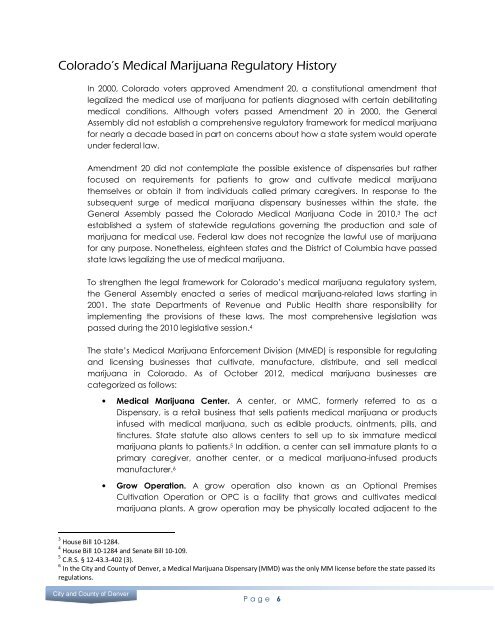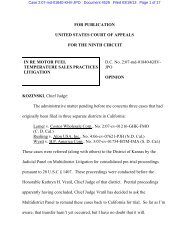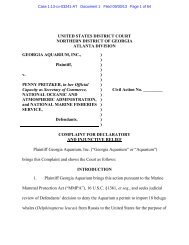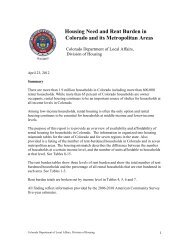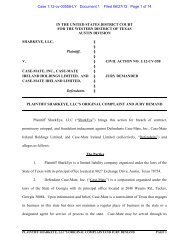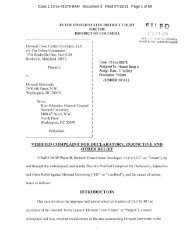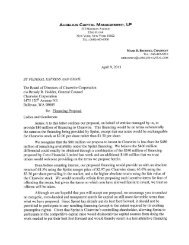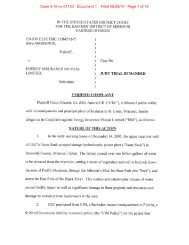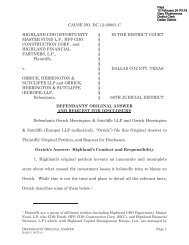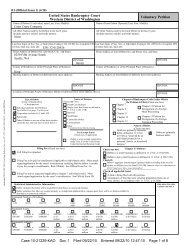Audit - City and County of Denver
Audit - City and County of Denver
Audit - City and County of Denver
You also want an ePaper? Increase the reach of your titles
YUMPU automatically turns print PDFs into web optimized ePapers that Google loves.
Colorado’s Medical Marijuana Regulatory HistoryIn 2000, Colorado voters approved Amendment 20, a constitutional amendment thatlegalized the medical use <strong>of</strong> marijuana for patients diagnosed with certain debilitatingmedical conditions. Although voters passed Amendment 20 in 2000, the GeneralAssembly did not establish a comprehensive regulatory framework for medical marijuanafor nearly a decade based in part on concerns about how a state system would operateunder federal law.Amendment 20 did not contemplate the possible existence <strong>of</strong> dispensaries but ratherfocused on requirements for patients to grow <strong>and</strong> cultivate medical marijuanathemselves or obtain it from individuals called primary caregivers. In response to thesubsequent surge <strong>of</strong> medical marijuana dispensary businesses within the state, theGeneral Assembly passed the Colorado Medical Marijuana Code in 2010. 3 The actestablished a system <strong>of</strong> statewide regulations governing the production <strong>and</strong> sale <strong>of</strong>marijuana for medical use. Federal law does not recognize the lawful use <strong>of</strong> marijuanafor any purpose. Nonetheless, eighteen states <strong>and</strong> the District <strong>of</strong> Columbia have passedstate laws legalizing the use <strong>of</strong> medical marijuana.To strengthen the legal framework for Colorado’s medical marijuana regulatory system,the General Assembly enacted a series <strong>of</strong> medical marijuana-related laws starting in2001. The state Departments <strong>of</strong> Revenue <strong>and</strong> Public Health share responsibility forimplementing the provisions <strong>of</strong> these laws. The most comprehensive legislation waspassed during the 2010 legislative session. 4The state’s Medical Marijuana Enforcement Division (MMED) is responsible for regulating<strong>and</strong> licensing businesses that cultivate, manufacture, distribute, <strong>and</strong> sell medicalmarijuana in Colorado. As <strong>of</strong> October 2012, medical marijuana businesses arecategorized as follows:• Medical Marijuana Center. A center, or MMC, formerly referred to as aDispensary, is a retail business that sells patients medical marijuana or productsinfused with medical marijuana, such as edible products, ointments, pills, <strong>and</strong>tinctures. State statute also allows centers to sell up to six immature medicalmarijuana plants to patients. 5 In addition, a center can sell immature plants to aprimary caregiver, another center, or a medical marijuana-infused productsmanufacturer. 6• Grow Operation. A grow operation also known as an Optional PremisesCultivation Operation or OPC is a facility that grows <strong>and</strong> cultivates medicalmarijuana plants. A grow operation may be physically located adjacent to the3 House Bill 10-1284.4 House Bill 10-1284 <strong>and</strong> Senate Bill 10-109.5 C.R.S. § 12-43.3-402 (3).6 In the <strong>City</strong> <strong>and</strong> <strong>County</strong> <strong>of</strong> <strong>Denver</strong>, a Medical Marijuana Dispensary (MMD) was the only MM license before the state passed itsregulations.<strong>City</strong> <strong>and</strong> <strong>County</strong> <strong>of</strong> <strong>Denver</strong>P a g e 6


